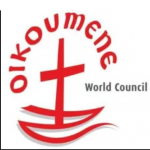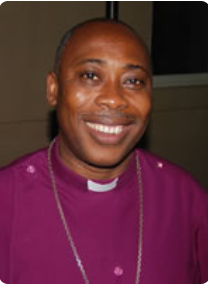As the World Council of Churches (WCC) executive committee met in Abuja, Nigeria, on 8-14 November, the governing body published a statement that included deep appreciation of Nigeria’s “astonishing diversity of cultures, languages, and religions” and also appeals to the Nigerian government to address economic injustice and other grave challenges facing the nation.
The World Council of Churches is a fellowship of churches which confess the Lord Jesus Christ as God and Saviour according to the scriptures, and therefore seek to fulfil together their common calling to the glory of the one God, Father, Son and Holy Spirit. It is a community of churches on the way to visible unity in one faith and one eucharistic fellowship, expressed in worship and in common life in Christ. It seeks to advance towards this unity, as Jesus prayed for his followers, “so that the world may believe.” (John 17:21).
In a press conference on 14 November in Abuja, Nigeria, the World Council of Churches (WCC) leadership of the central committee highlighted the WCC’s focus on some of the world’s most serious challenges, and how the WCC brings hope. It also released a statement on COP28’s responsibility for climate justice and demands an immediate ceasefire, and the opening of humanitarian corridors in Palestine and Israel.
WCC Urges Federal Government of Nigeria to do more to Address Economic Injustice
The WCC “affirms the Nigerian churches’ strong commitment to interreligious dialogue and cooperation with the Nigerian Muslim community and institutions” and “welcomes all efforts by the government to address the concerns of Christians and Muslims alike.”
The WCC executive committee addressed Nigeria’s regional context, as many neighbouring or nearby countries are experiencing crises which impact on the region as a whole.
“Displacement and instability in the region is being exacerbated by increasing environmental degradation and desertification due to climate change,” the statement notes. “Here in Nigeria, the WCC executive committee has received painful testimonies from the churches of the insecurity, violence, displacement, and persecution faced by Christians in northern Nigeria as well as in other parts of the country.”
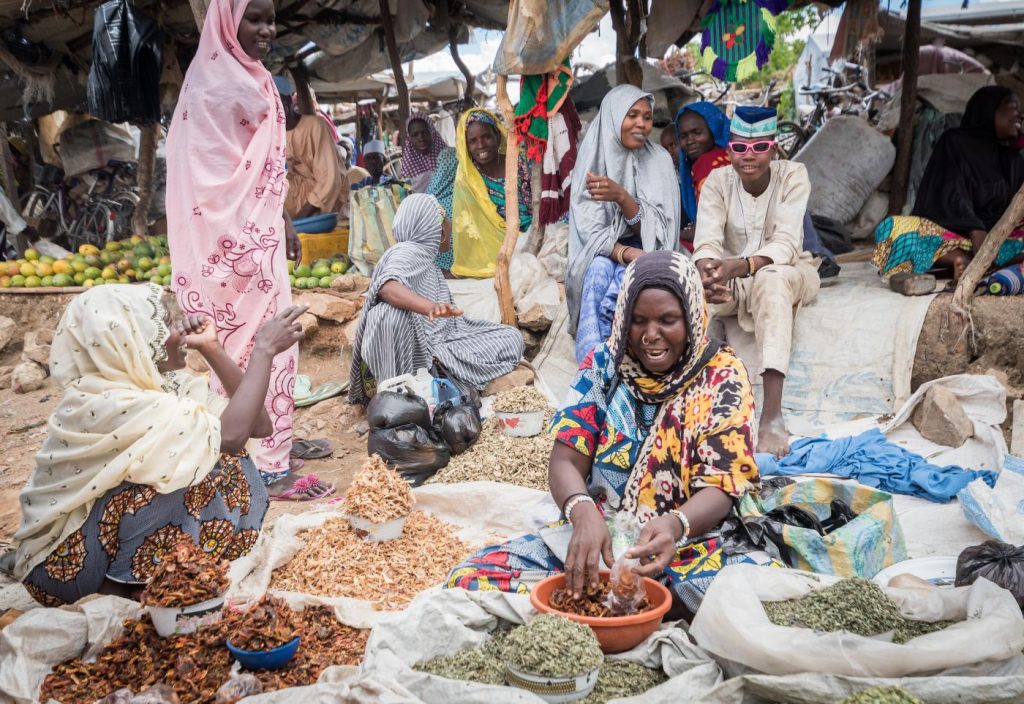
The statement appeals to the Nigerian government and authorities to exert maximum effort to bring security and stability to the affected communities. “The executive committee is also acutely aware of the extreme economic inequality in Nigeria, and of the increasing daily struggle for subsistence faced by many Nigerians, while wealth and privilege accumulate in the hands of elite sectors of society,” the text reads. “Meanwhile, recent reports indicate that a significant proportion of Nigeria’s population is undernourished, representing a major hunger crisis for the nation.” Read Full Statement Here:
Statement on Nigeria, in the Regional Context of Africa | World Council of Churches (oikoumene.org)
WCC highlights how to bring hope amid world’s concerns
The World Council of Churches (WCC) leadership of the central committee highlighted the WCC’s focus on some of the world’s most serious challenges, and how the WCC brings hope.
Bishop Dr Heinrich Bedford-Strohm, moderator of the WCC central committee, reflected on how appreciative the WCC executive committee has been for the host churches in Nigeria as the governing body met in Abuja from 8-14 November.
“We have been impressed by the religious vibrance of this country, not only by the beauty of the countryside, by the beauty of the people, but by the strong religious basis of Nigeria,” said Bedford-Strohm, highlighting an executive committee statement on Nigeria and its regional context. “I want to assure you of our prayers.”
Rev. Merlyn Hyde Riley, vice-moderator of the WCC central committee, spoke of the WCC executive committee’s statement on the COP28. “The WCC is interested and is concerned about all justice issues, and climate justice is one of those issues. We are calling for greater attention to renewable energy, that we will now find alternative ways for sourcing and finding energy for our populations, that we will give great attention to global warming. It is important that, as we call for more renewable energy, that we are also calling for greater climate financing,” she said.
H.E. Archbishop Dr Vicken Aykazian, vice-moderator of the WCC central committee, expressed deep appreciation for the WCC’s statement on the need for international response to the needs of Nagorno-Karabakh refugees.
“Why the World Council of Churches?” he asked. “Because the World Council of Churches is an important organization in the world that tries to find a solution for those people who are suffering. We thank God for this organization and we thank the leadership of the World Council of Churches for following, and continuing to follow, what is happening in Nagorno-Karabakh.”
Rev. Prof. Dr Jerry Pillay, WCC general secretary, in addition to offering an introductory overview of the WCC, spoke about the executive committee’s statement on Palestine and Israel.
“We work on a very broad scale of interreligious cooperation and collaboration in the field of peace efforts,” he said. “Since the attack of Hamas on Israel on 7 October, there has been continued retaliation by Israel, and so the situation in the Gaza is really, really bad. We have called for an immediate ceasefire in Gaza. Our view as the WCC is that violence and wars do not contribute to peaceful negotiations.”
The press conference was offered a panel discussion followed by a question-and-answer session. In introducing the panel, His Holiness Rev. Dr Rufus Okikiola Ositelu, Church of the Lord (Prayer Fellowship) Worldwide, WCC president from Africa, gave a heartfelt message of gratitude to the WCC member churches and communities in Nigeria. “For this we say, thank you, and God bless you all,” he said.
WCC Calls on COP28 to “rise above,” Act Collectively in Addressing Climate Change
The 28th Conference of the Parties of the United Nations Framework Convention on Climate Change (COP28) will take place 30 November-12 December in the United Arab Emirates. “At this time of climate emergency, it is essential that COP28 courageously addresses the fossil fuel industry and their responsibility towards people and planet,” reads the statement. “COP28 is pivotal for the future of the living planet, our common home, and for our children and future generations.”
The statement calls for rendering climate justice to more vulnerable and low-income nations and communities. “This means ensuring new, additional, adequate and predictable funding for economic and non-economic losses and damages experienced mainly by more vulnerable and low-income countries which is expected to reach $150-300 billion a year by 2030,” the statement reads. “Such funds must be made accessible to climate-impacted communities.”
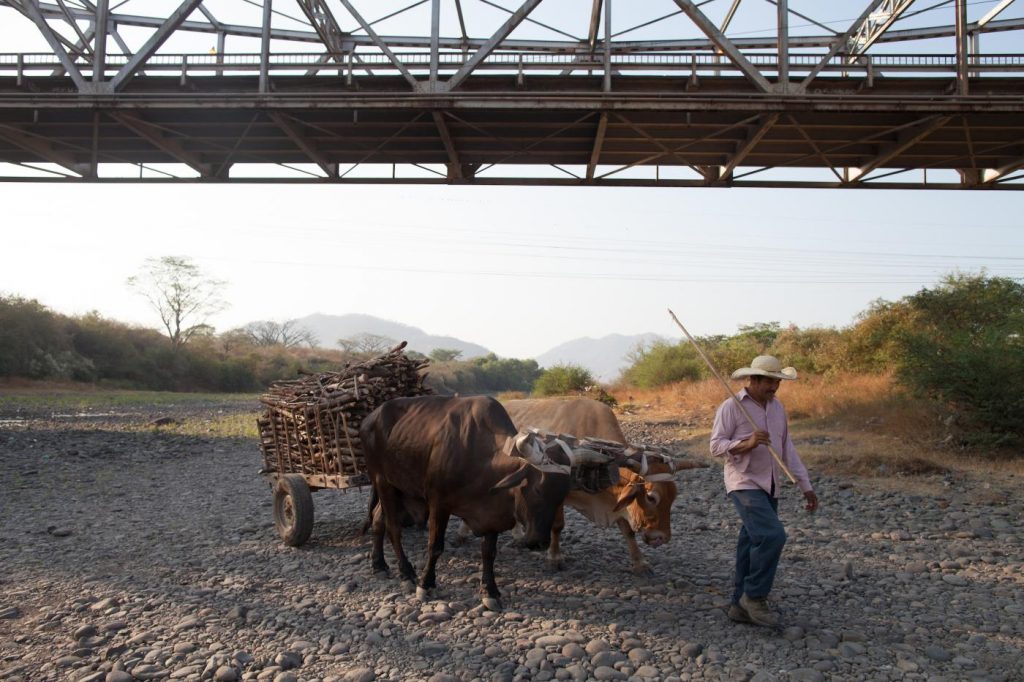
The WCC also calls for COP28 to rapidly deliver climate finance that gives climate-vulnerable nations and communities a chance to adapt to the consequences of climate change. “At a minimum, this COP must live up to the promise of providing 100 billion dollars per year for the Green Climate Fund,” reads the text. “Such finance must be needs-based, at the scale required, and in the form of grants rather than loans.”
WCC Demands Immediate Ceasefire, Humanitarian Corridors in Palestine and Israel
The World Council of Churches (WCC) executive committee, meeting in Abuja, Nigeria, on 8-14 November, released a statement that demands an immediate ceasefire, and the opening of humanitarian corridors in Palestine and Israel.
We yearn for peace and for justice, for an end to the seemingly endless cycle of violence and suffering, and for its fundamental root causes to be addressed,” reads the statement. “We lament the abject failure of the international community and of political leaders in the region who did not persist in the search for a sustainable peace founded on justice and mutual respect for the equal human dignity and rights of all, and who kept the cycle of violence turning.”
The WCC governing body also lifted before God the suffering and traumatized people in the land of Jesus Christ’s birth. “We highlight the lifelong and potentially intergenerational consequences of the terrible trauma that children in both Palestine and Israel are experiencing,” the text reads.
“We pray for peace in the land, a sustainable and just peace founded at last on recognition and respect for the God-given human dignity and equal human rights of all people – Israelis and Palestinians, Jews, Muslims, and Christians alike – rather than a false ‘peace’ imposed by occupation and force of arms which cannot and should not be sustained.”
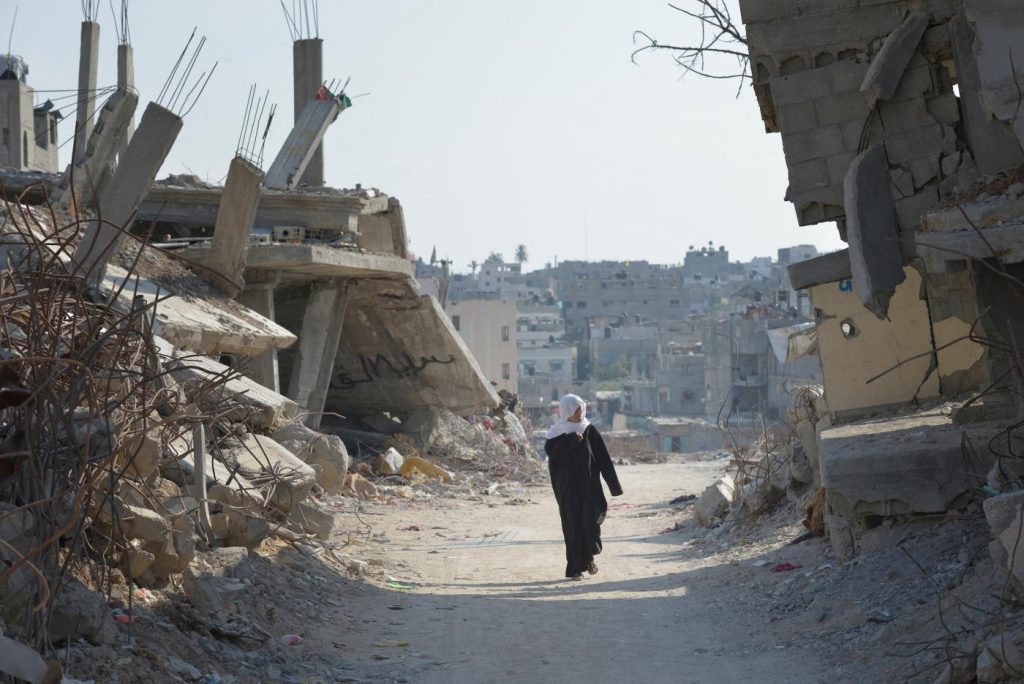
The executive committee appealed for respect by all parties for the God-given life and dignity of every human being, as well as respect for the principles of international humanitarian law, especially for the protection of civilians and civilian infrastructure – including hospitals (such as the al-Ahli, al-Shifa, and al-Quds hospitals), places of worship and holy sites (such as the St Porphyrios Greek Orthodox Church), and UN premises – and called for full and impartial legal accountability for all violations of these principles by whomsoever committed.
The statement demands “the immediate unconditional release and safe return of all hostages” as well as “an immediate ceasefire and the opening of humanitarian corridors.”
The text also “calls for guarantees of the unimpeded distribution and delivery of vital humanitarian assistance, including water, food, medical supplies, and fuel, and the reinstatement of electricity and internet services in Gaza.”
WCC Calls for International Response to the Needs of Nagorno-Karabakh Refugees
The governing body released a statement after reviewing the report of a WCC delegation visit to Armenia on 18-22 September.
The statement “expresses deep solidarity with the Armenian people and churches, and especially with all those who have fled from their ancient homeland in Nagorno-Karabakh, following the traumatic events of 19-20 September 2023.”
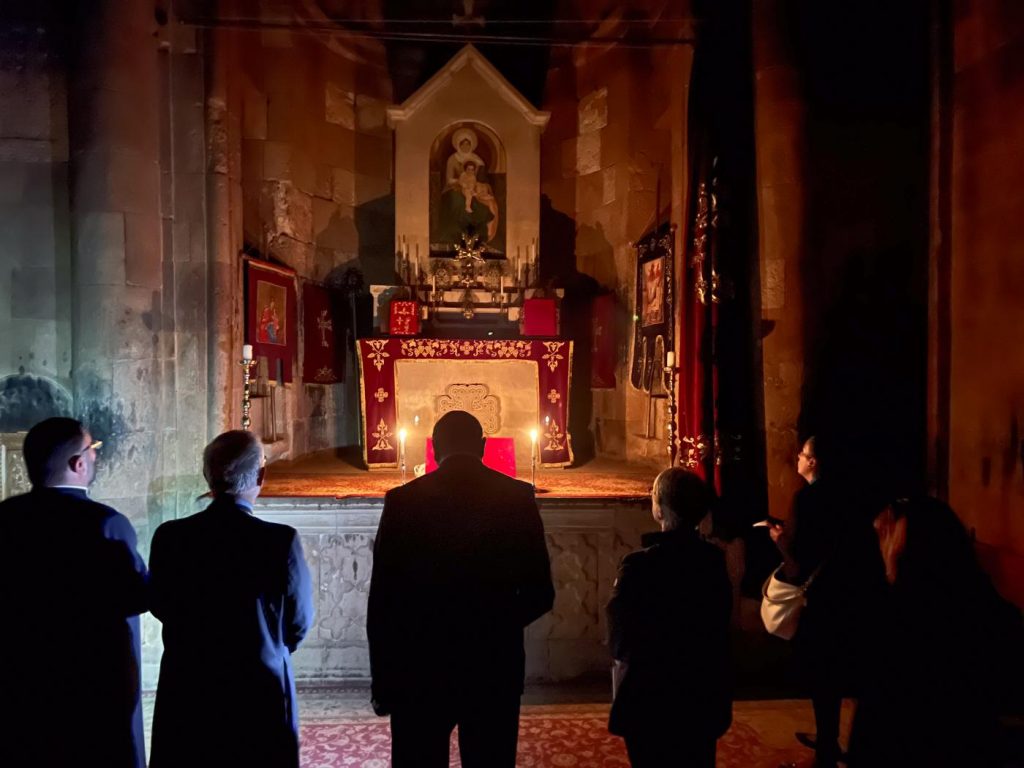
The WCC also expresses profound regret that, “in the years since the 1992-1994 Nagorno-Karabakh war, ways could not be found to secure a sustainable peace among the people of the region.”
The statement urges the government of Azerbaijan to guarantee security and equal rights for those ethnic Armenian people who remain or who may decide to return to their homes. Among other calls, the statement also appeals to the European Union “to strengthen the EU Mission in Armenia, in order to ensure sufficient personnel and resources to monitor and report on any incursions by Azerbaijan’s armed forces on the sovereign territory of Armenia.”
The WCC brings together churches, denominations and church fellowships in more than 120 countries and territories throughout the world, representing over 580 million Christians and including most of the world’s Orthodox churches, scores of Anglican, Baptist, Lutheran, Methodist and Reformed churches, as well as many United and Independent churches. While the bulk of the WCC’s founding churches were European and North American, today most member churches are in Africa, Asia, the Caribbean, Latin America, the Middle East and the Pacific. There are now 352 member churches.




